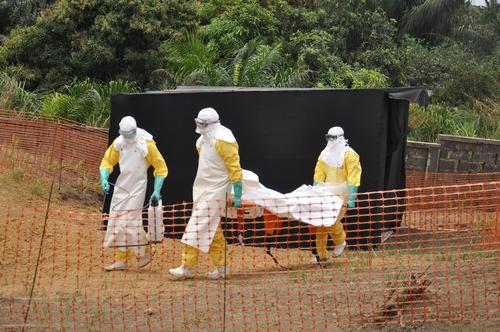(Two stories. Scroll down.)
REUTERS by Kate Kelland June 5, 2015
LONDON -- Global health leaders will ask G7 leaders this weekend to back the creation of a specialist rapid response unit to tackle outbreaks of infectious killer diseases.
 The corpse of a patient who passed away is given back to the family for funerals after being decontaminated by the MSF teams. It was washed with chlorine solution and put it in a hermetic bag also disinfected to leave the high risk area.
The corpse of a patient who passed away is given back to the family for funerals after being decontaminated by the MSF teams. It was washed with chlorine solution and put it in a hermetic bag also disinfected to leave the high risk area.
The move reflects how the World Health Organization in particular was caught unprepared last year by Ebola, which spread through three West African countries, has killed 11,000 people, and will not be stamped out before the end of this year.
Jeremy Farrar, director of the Wellcome Trust global health charity, said the unit should come under the WHO, but be free of bureaucracy and able to act independently "in days" when a potentially fatal epidemic begins...
Recent Comments